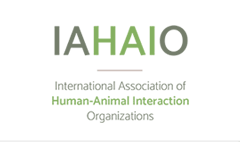Abstract
This research aimed to quantitatively explore various elements related to people living with companion animals during the COVID-19 emergency lockdown in Puerto Rico. Among the variables studied are guardians’ gender, age, animal species, time spent per day with the companion animal, perceived benefits, and attachment level between the person and their companion animal. Matters related to emergency preparedness plans regarding companion animals, changes in the human- animal interactions, and perceived companion animals’ changes during the lockdown were analyzed. Researchers used an online questionnaire for data collection. The sample consisted of participants over 21 years old (n = 3,663) living on the Island during the emergency COVID-19 closure. The results showed statistically significant evidence that, on average, women had higher attachment levels than men and perceived higher benefits from their companion animals during the lockdown. Additionally, findings suggest a moderately significant positive correlation between human–companion animal attachment and guardians’ perceived benefits. Some of the perceived benefits during lockdown and confinement included companionship and unconditional support, a sense of security, relaxation, and the elimination of boredom. Interestingly, the majority reported considering companion animals in their family emergency plans, including having someone who could take care of their companion animals if needed. These and other results are presented, discussed, and contrasted with recent related research, highlighting the similarities and differences in current data, limitations, and future directions. In conclusion, overall, the pandemic allowed more opportunities for positive interaction between people and their companion animals and helped guardians cope better in this novel and vulnerable situation.
Recommended Citation
Segarra-González, Yahaira and Meléndez-Samó, Liza M.
(2021)
"If the World Was Ending: Companion Animals and Their Guardians in COVID-19 Times,"
People and Animals: The International Journal of Research and Practice: Vol. 4
:
Iss.
1,
Article 8.
Available at:
https://docs.lib.purdue.edu/paij/vol4/iss1/8


